The Cursor
May 1, 2015
It blinked at her, the cursor did, as she sat in her desk with her hands hovering over the keyboard, inanimate. She simply stared blankly at the page, and when her eyes closed, she could still see the black line flashing, taunting her, boring into her sight, following her retinas everywhere she turned.
Blink. Blink. Blink. Blink.
She didn’t even have to glance around to know that every one of her classmates had an idea, a story to scribe. The soft clicking of the twenty Chromebook keyboards was enough to put pressure on her, but the clock, the time, was enough to drive her mad. And, surely, the barbarous cursor knew this.
Tick-tock. Tick-tock. Tick-tock.
The blasted thing was in sync with the clock, chaffingly reminding her that time was running out. Slowly, her head turned around and she glanced at her teacher, who was clinging to a cup of coffee like it was the Holy Grail while helping another student. At least they already had an idea to work with.
I wonder if creative genius truly comes spontaneously. Do deadlines inhibit creativity, or excite it? Maybe we could put our full attention to crafting something perfect if we had infinite time, or maybe we would have no reason for innovation. But that’s not how this world works. We don’t have all of the time in the world, and likewise, we must conform to time constraints to accomplish anything within our short lives. But, again, does this stifle creativity? Of course, admirable ingenuity has come during the times when we need it most. Examples include the breaking of the Enigma or the creation of the Atomic bomb. But what about when Sir Isaac Newton crafted Calculus? He found a problem, a puzzle to work on and created the solution to what would help break the Enigma and engineer the Atomic bomb. Newton, in contrast to those of MI6 and the Manhattan Project, had no deadline, if you ignore his imminent death.
Tomorrow. She had to have this story done by tomorrow, but she just couldn’t envision it. Her paper was still blank, and she didn’t think there was any way that she would be holding a warm stack of paper, fresh from the printer, tomorrow by third period. What was one to write about if they were truly concerned with doing something different, something contemporary?
Tick-tock. Tick-tock. Tick-tock.
Sighing, she rubbed her hand against her temple as her elbow rested on her desk.
Can we truly be innovative, and new, and creative? If the universe is indeed as large and as old as physicists tell us, there has to be someone out there who looks just like me while typing the same words on the same computer, or at least someone who has before. It’s simple mathematics. Although the human genome is incredibly complex, it has a stupendous, albeit limited, number of permutations and combinations. The universe, however, is infinite, and we are the infinitesimal subjects of something bigger than our brains can comprehend. With infinite space, and finite combinations, it is only logical to assume that some things have to be the same somewhere else as they are here. It may be a better use of our time to think of things we like, rather than things that are “new,” as it may be impossible to be truly innovative in a universe as vast as ours.
Forgoing her attempts at doing something new, she decided to try to find inspiration. She examined the posters of movies plastered around the classroom. Star Wars, Indiana Jones, Back to the Future. And Jaws. Nothing. A time traveling shark with a luminescent blue whip was all she could come up with.
She again glanced at the clock. Frantic on the inside, she began to type. The cursor would not leave her alone. The flashing demanded that she write more, more of the same story that she already hated.
The whole thing seemed wrong. It started with the letter “A,” which in her mind was unacceptable. It just didn’t look right. She lifted her pointer finger and pressed the backspace key. There. That looked better.
Blink. Blink. Blink. Blink.
Some were typing furiously, others were typing gracefully, but they were all typing something. They all had an inspiration, or something they felt was new and creative.
She looked at the clock for the umpteenth time.
Time is funny. When I looked in the dictionary to define time, I was met with two definitions. On one hand, it is a construct of our own imaginations, defined as “a point of that is measured in hours and minutes past midnight or noon.” But that’s what has been created by humanity. Measurements. 10:08 isn’t really time, it is just our measurement of time.
We like to think of time as something we can control. Measurements allow us to manipulate what we interpret. But what we don’t like to think about is that time, in its true form is “the indefinite continued progress of existence in the past, present, and future regarded as a whole.” Time has existed far longer than humanity, and will continue to exist far after we’ve gone. Time is eternal. We are not.
Tick-tock. Tick-tock. Tick-tock.
She thought she had an idea that was acceptable, not great, not new, but acceptable. Her fingers started to move, gaining momentum like a train would, slowly, but steadily. Was it really a short story? Well, it was more of a tale, and it seemed a bit too anarchist, but it would do. Best of all, it didn’t start with the letter “a.” It started with “t,” tall and regal, but not full of itself.
The cursor ceased to flash. She wouldn’t let it anymore. All she had to do was keep typing, and the cursor would feel small surrounded by her words. No longer did the cursor control her. Steering it across the page, she now controlled the cursor.
I am small, and I don’t care if you are six foot ten and two hundred fifty pounds, because you are small, too. I don’t care if you are a renowned world leader, because, in the grand scheme of things, you are just as infinitesimal as I am. I’m not telling you this to make you lose your sense of self-worth. I’m telling you this to keep your pride in check. You see, we are all passengers on the same segment of infinity, and in comparison to the world we are a part of, we are minuscule. And if we, the mighty human race, are miniscule, what does that make our problems, our conflicts? In terms of mathematics, they are smaller than a line approaching a horizontal asymptote at zero. So why do we take the time, time from our limited lives, to kill each other, to exterminate entire groups of people, when, in the grand scheme of our universe, the issues we fight over are subatomic. Why do we argue over race, religion, and other matters of pride? We are all equally small. And, in being so small, each one of us should be able to enjoy ourselves, regardless of what we believe.
She hit the spacebar after she typed the final period, the end to her story. Was she proud of it? No. Not even a little bit. But it was done, and it was pretty if she squinted enough that her computer screen looked like a bunch of grey streaks. She had simply lost her sense of pride.
For a moment, her eyes met the cursor, as it stood at the end of her story. It hesitated. It didn’t flash. It was just simply there, no longer her source of anxiety.
Do I really believe everything I say? I don’t really know. I just think it is fun to think about, and fun to convey. Honestly, it’s my version of a social experiment. But I do think I believe in making the most of the time I have, and wasting time on anxiety and stress doesn’t really fit in with that. I am, indeed, human however, and I cannot always follow the rules I set for myself. Sometimes I just have to start an essay with the letter “a.” I try my best though. I am aware that I will have to do things for the rest of my life that I would love to avoid, but it’s better to take the metaphorical bull by the horns and get these feats over with, rather than worry about them. What does worrying really accomplish?
Time is eternal, but humanity is not.



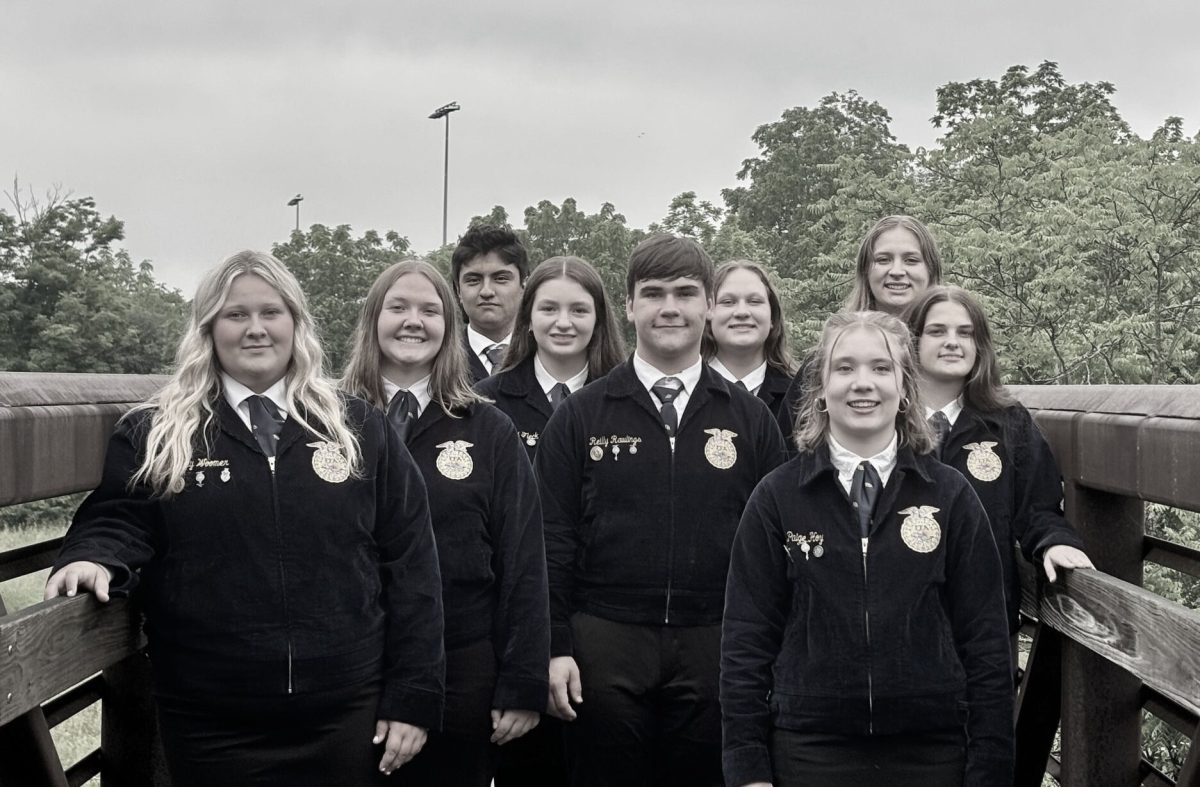
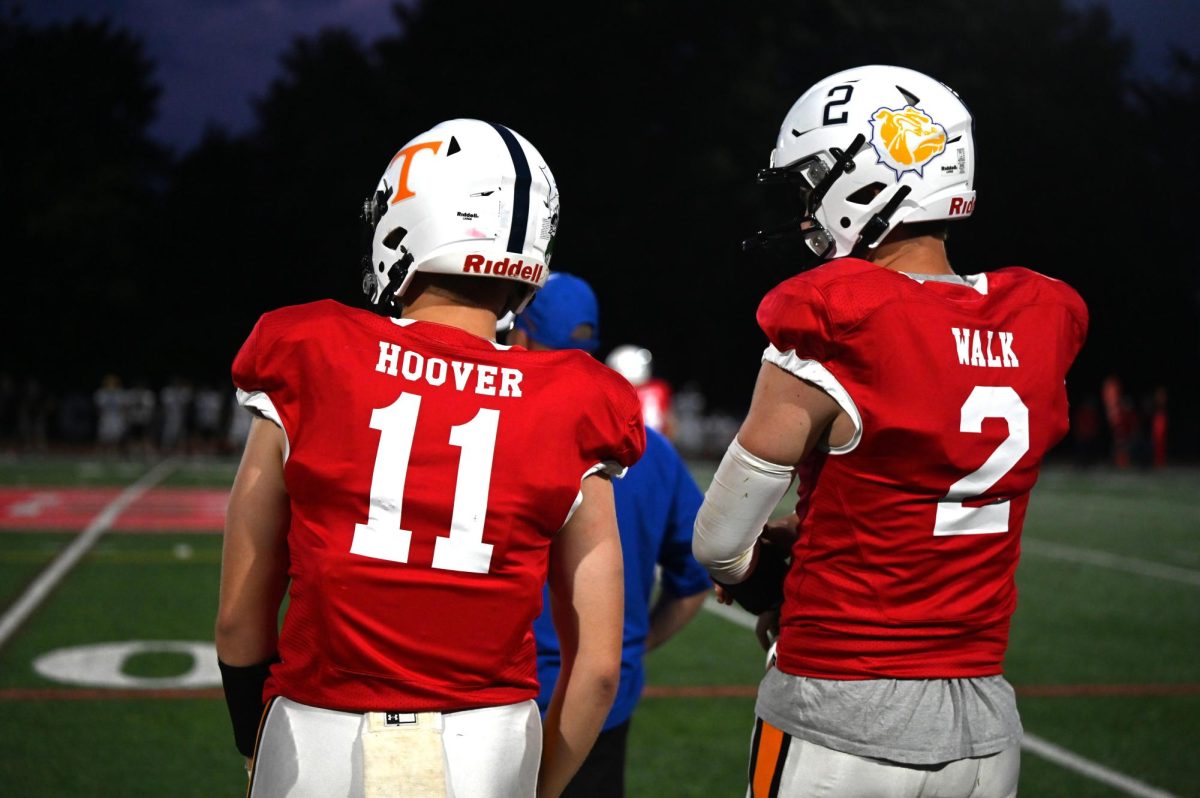
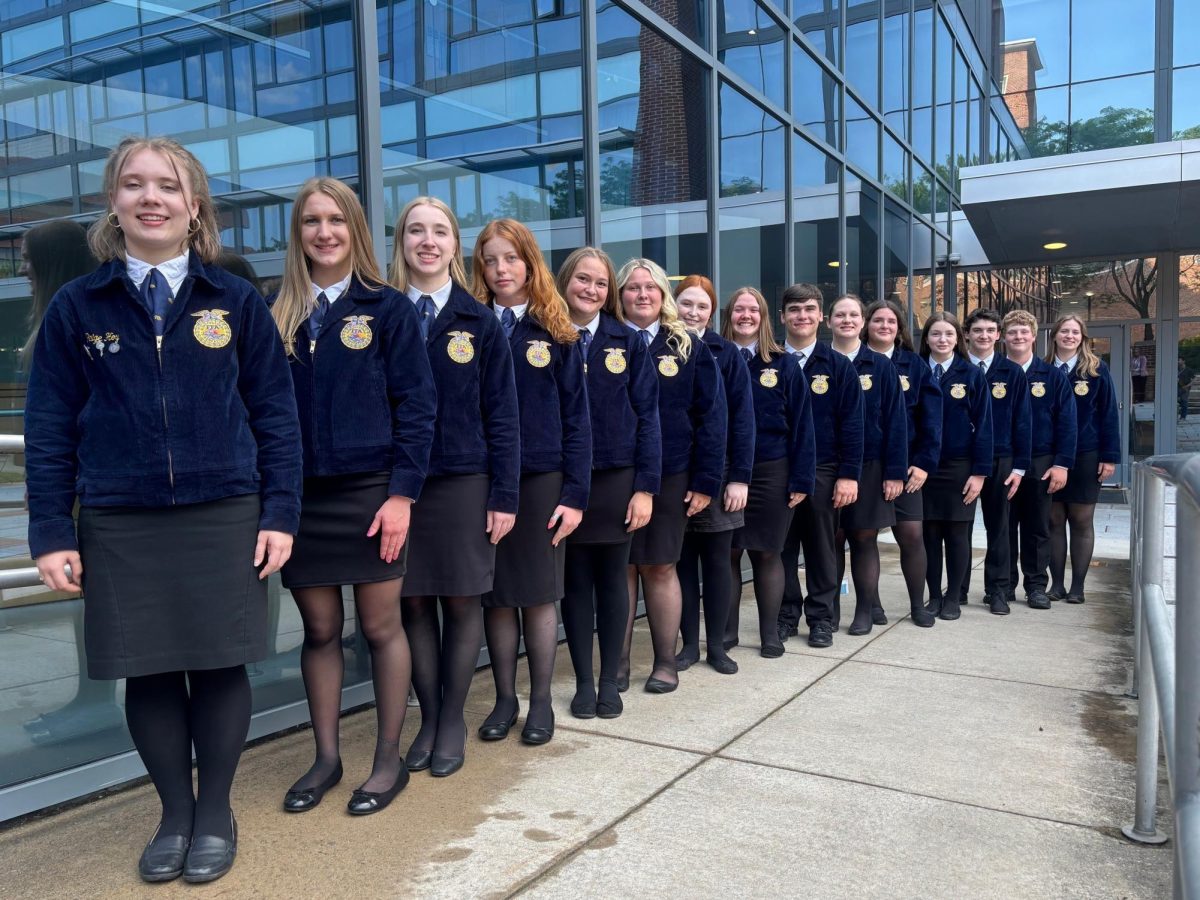

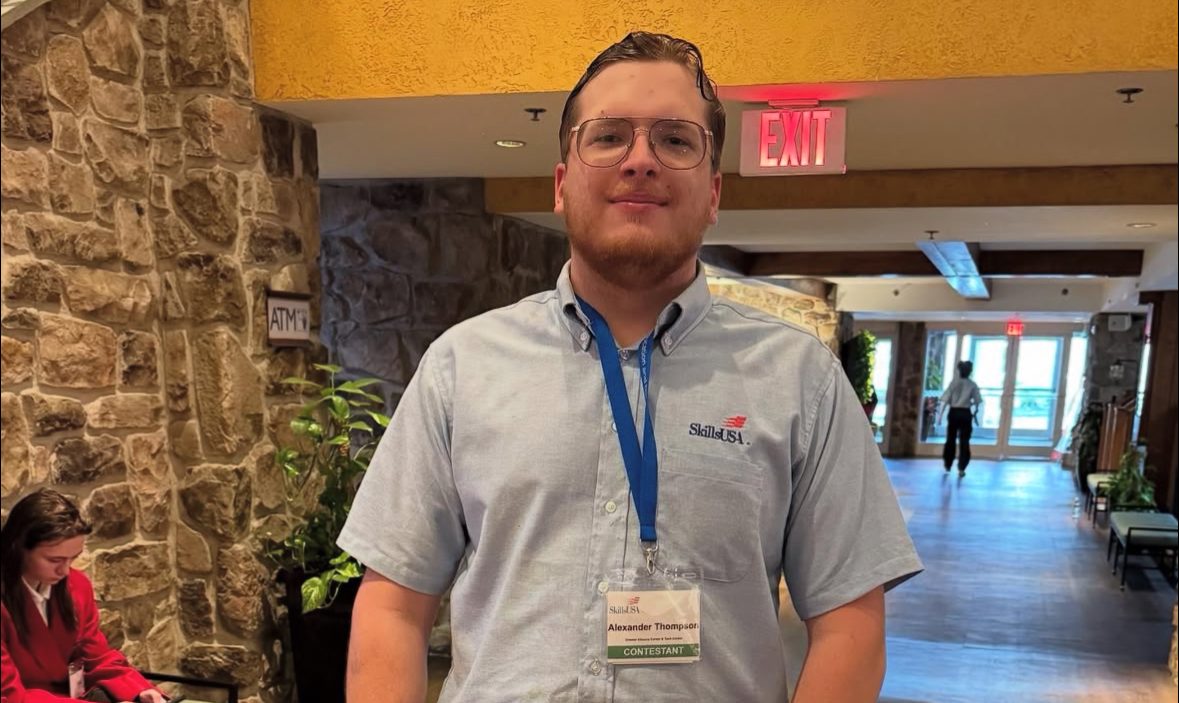


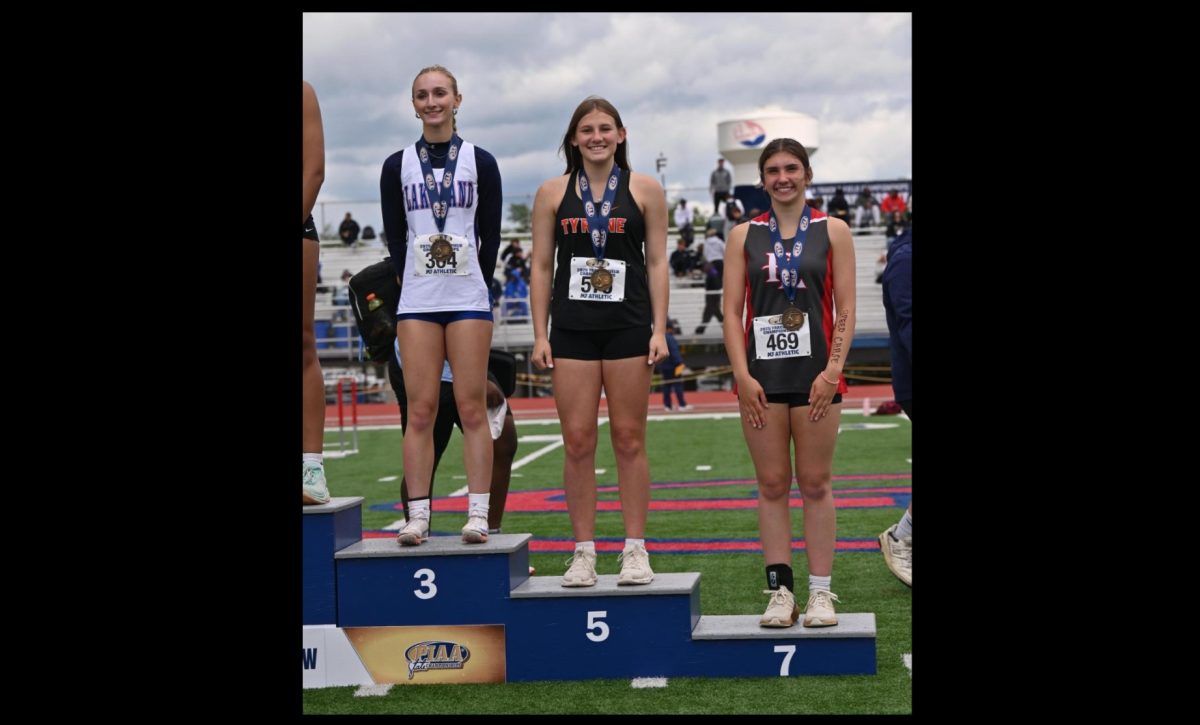
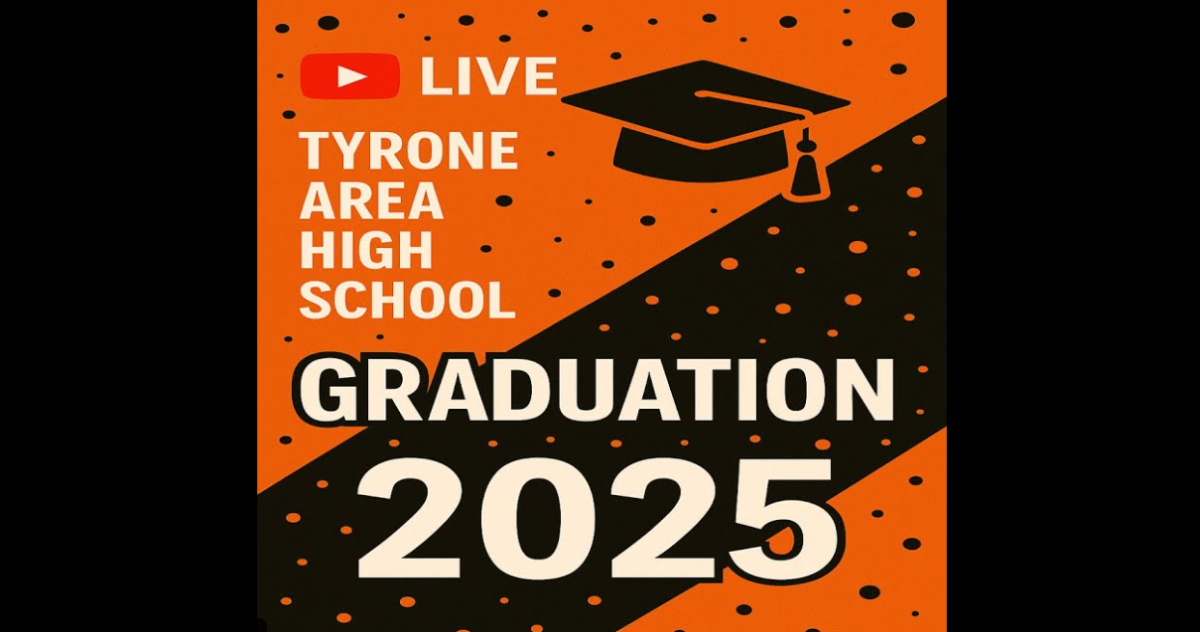

Carole Richter • May 17, 2015 at 2:57 pm
Very creative. The author put a lot of thought into what was written. The very last paragraph: “Do I really believe everything I say?” … was very honest and thought provoking for the reader. A great job!!!
Carole Richter • May 17, 2015 at 3:01 pm
Very creative. The author put a lot of thought into what was written. The very last paragraph: :Do I really believe everything I say?” …was very honest and thought provoking for the reader. A great job!!!
Carolyn A. Sparks • May 17, 2015 at 1:52 pm
Upon reading, “The Cursor,” I found my thought process continuing to expand regarding the creativity of the story.
Coming to know the, “Cursor,” later in life I realize how determined that little demon is to say to me, “Keep going, keep writing!”
The author conveys this point extremely well throughout the story.
The ending was very climatic in relating to life and the fact that time was created by humans and every so often we must hit the space bar.